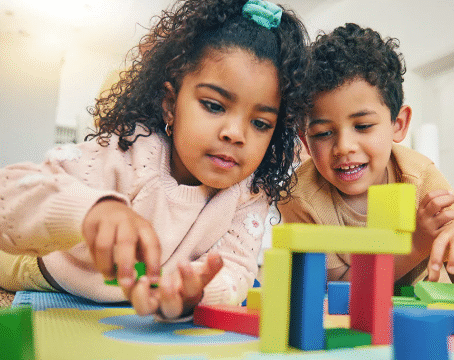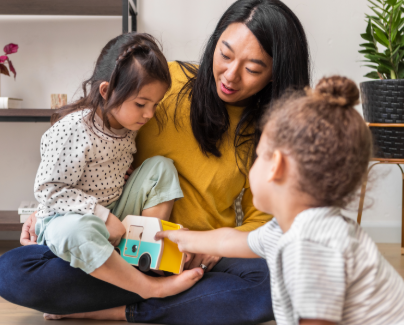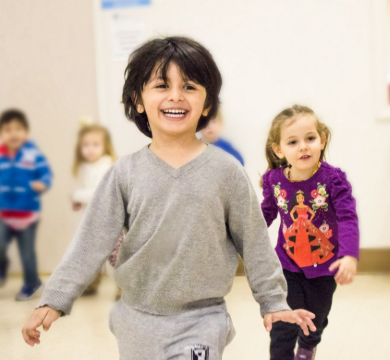Laughter is often called the best medicine, but for children, it can also be one of the best teachers. When children laugh, they not only feel joy in the moment but also build important connections between their minds, bodies, and relationships. Teaching healthy habits at an early age can sometimes feel like a challenge, but when laughter is included in the process, the lessons become natural, enjoyable, and memorable. Children learn through experiences that make them feel safe and happy, and laughter creates the perfect environment for growth.
Parents, caregivers, and teachers often wonder how to instill healthy habits without making the process feel like a list of rules. The answer can be surprisingly simple: wrap lessons in play, fun, and humor. When a child giggles while brushing their teeth to a silly song or shares laughter during a family walk, the act of caring for their body and mind transforms into something exciting rather than something they feel forced to do. Laughter can be a gateway to daily practices that shape lifelong health.
One of the first ways laughter can encourage healthy habits is through movement. Physical activity is vital for children, but not every child is naturally drawn to sports or exercise. If running is paired with a game of tag filled with shrieks of laughter, or if jumping feels like dancing to a funny tune, children associate movement with joy. These experiences plant seeds for an active lifestyle. Instead of thinking of exercise as a chore, they learn to move their bodies with enthusiasm. Laughter in play shows them that staying active is about fun, energy, and connection.
Another important habit to build early is healthy eating. Meals are often moments when families encourage children to try new foods, but laughter can make these moments more relaxed. A child who pretends to be a rabbit nibbling on carrots or laughs while making funny faces out of fruit on their plate is more likely to taste and enjoy nutritious foods. Positive emotions during meals create lasting impressions. When children laugh with family at the dinner table, they learn that eating well is not just about what they eat, but also about the joy of sharing food together.
Hygiene habits, such as brushing teeth and washing hands, can also benefit from laughter. Instead of presenting these tasks as serious obligations, parents can turn them into playful routines. Singing silly songs while brushing teeth or pretending soap bubbles are magical during handwashing can transform simple chores into moments of laughter. Over time, children internalize the importance of cleanliness, but their memory of these habits is tied to warmth and amusement rather than pressure.
Laughter also plays a role in building emotional health, which is just as important as physical health. When children laugh, they learn how to release stress and cope with daily challenges. Shared laughter with friends or family helps them develop resilience and social bonds. It teaches them that even when life is not perfect, humor can make situations lighter. Parents who laugh with their children demonstrate that mistakes and setbacks can be met with patience and a smile. This early lesson in emotional balance becomes a lifelong tool for well-being.
Reading together is another moment where laughter can shape healthy habits. Stories that include humor spark a child’s imagination while creating a love of reading. When laughter is woven into story time, children see books as sources of delight rather than just learning tools. This habit not only supports language development but also builds attention, empathy, and creativity. A child who grows up laughing at funny stories may carry a lifelong appreciation for reading and the comfort it brings.
Even sleep routines can be strengthened through laughter. While bedtime is often viewed as a serious transition, a lighthearted approach can ease the process. Gentle jokes, bedtime giggles, or a funny but calming story can turn bedtime into something children look forward to. Instead of resisting, they relax with positive feelings, which encourages restful sleep. Over time, they understand that a good night’s rest is part of a happy, balanced life.
Family time is another area where laughter serves as a foundation for healthy living. Families who share inside jokes, play games, or simply enjoy lighthearted moments build stronger bonds. This sense of belonging nurtures children emotionally and socially. They learn that laughter is not only about entertainment but also about connection and trust. These lessons shape how they build relationships throughout life, teaching them to value kindness, humor, and togetherness.
Teachers and caregivers can also bring laughter into classrooms and group activities. Whether through playful learning methods, funny songs, or lighthearted games, laughter makes children more engaged and cooperative. When a child associates learning with fun, they develop curiosity and motivation. Academic skills grow alongside emotional and social ones, all supported by the positive reinforcement of humor. These experiences create an early association between education and joy.
It is also worth noting that laughter itself has physical health benefits. Studies show that laughter can boost immunity, improve circulation, and reduce stress hormones. While children may not understand the science, they certainly feel the results. A child who laughs often feels lighter, calmer, and more ready to face the day. This natural benefit reinforces the idea that joy is not just fleeting fun but a contributor to overall wellness.
Parents do not need to be professional comedians to use laughter as a teaching tool. Simple, everyday humor works best. Funny faces, playful voices, or imaginative games can make ordinary routines extraordinary. When children laugh, they remember. Over time, the laughter fades, but the habits remain. They carry with them not just the actions of brushing, moving, eating, or reading, but also the joy that came with those experiences.
As children grow, the healthy habits tied to laughter become part of who they are. A child who laughed while eating fruits may choose them naturally as a teenager. A child who laughed through bedtime stories may continue valuing rest as an adult. A child who laughed while being active may embrace fitness not because they feel they must, but because they know it feels good. In this way, laughter shapes more than just childhood; it builds a foundation for a joyful, healthy life.
In the end, laughter is more than just sound. For children, it is a guide, a teacher, and a companion. It transforms routines into rituals of joy and builds habits that last long beyond childhood. Parents and caregivers who use laughter in daily life are not only creating happy moments but also planting seeds for lifelong health. When children learn early that laughter belongs in every part of living, they grow with an inner sense of balance, strength, and joy. Healthy habits do not need to feel heavy. With laughter, they become light, natural, and filled with the promise of a brighter future.






